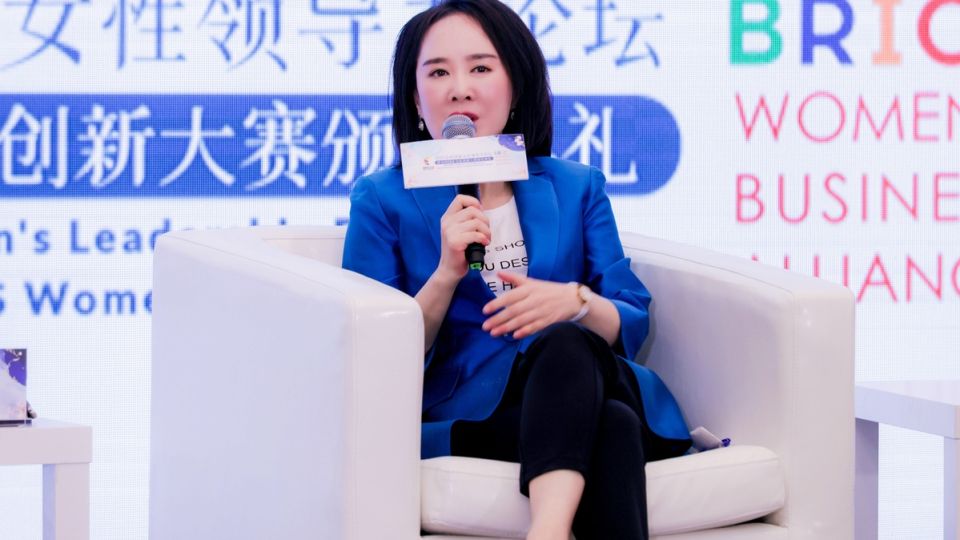June 2, 2022
BEIJING – Digital technology and services have brought unprecedented opportunities for women in employment and significantly lowered the threshold of starting a business and acquiring resources, with “she-power” gaining broader room for growth in the era of the digital economy, said Diane Wang, a member of the China chapter of the BRICS Women’s Business Alliance, in an exclusive interview with China Daily.
In this period of technological advancement, the infrastructure construction of China’s digital economy further optimizes, meaning more and more women are devoting themselves to entrepreneurship in the sector, according to the BRICS WBA Development Report 2022 released Tuesday.
The report showed among potential entrepreneurs, 55 percent of women had entrepreneurial intentions, a higher proportion than the 51 percent of men in 2020, and the proportion of female entrepreneurs on digital platforms reached 49.25 percent in 2021.
In the rural areas of China, digital economy also generates abundant working opportunities, and plays a critical role in the country’s poverty alleviation efforts, the report said.
By engaging in rural e-commerce platforms, disadvantaged women get employed in a flexible way, with their living conditions being comprehensively improved.
Wang, also the founder and CEO of DHgate – one of the leading cross-border B2B e-commerce platform in China, is committed to accelerating the digital transformation for SMEs in international trade, and empowering women building up business and getting involved in the global supply chain by taking advantages of digital tools.
“Over 40 percent of online shops in DHgate are set up or led by women,” Wang said. “As the e-commerce penetration rate further improves in the post-pandemic era, matured digital services and technologies make it easier for individuals or women to start their own business.”
She initiated the APEC Women Connect program and the APEC Cross-Border E-commerce Training e-Learning platform, with courses and training workshops to help more women realize their entrepreneurial dreams through digital platforms.
As of today, the CBET program has trained about 100, 000 business operators and policy makers from over 50 economic entities in APEC and Western countries.
The rise of female entrepreneurship makes great contributions to social prosperity by fostering gender equality, reducing poverty and promoting economic inclusion, Wang said.
However, the COVID-19 pandemic has dealt a huge blow to women’s employment, threatening efforts made by various countries to eliminate the gender gap in recent years.
“Women shoulder more family responsibilities after the virus outbreak, and it is difficult to balance a home life and career.” Wang said. “The unequal distribution of education resources by gender also impedes women’s further development in the job market.”
In the face of challenges, Wang suggested BRICS countries enhance cooperation with each other, especially in the e-commerce sector, by organizing online workshops, offering training courses and sharing successful experiences to empower woman in the digital economy.
“International organizations should make more efforts to achieve gender equality by making good use of the digital economy” she said. “We will increase information promotion efficiency in the future and help less developed countries and disadvantaged groups get involved in economic globalization.”


